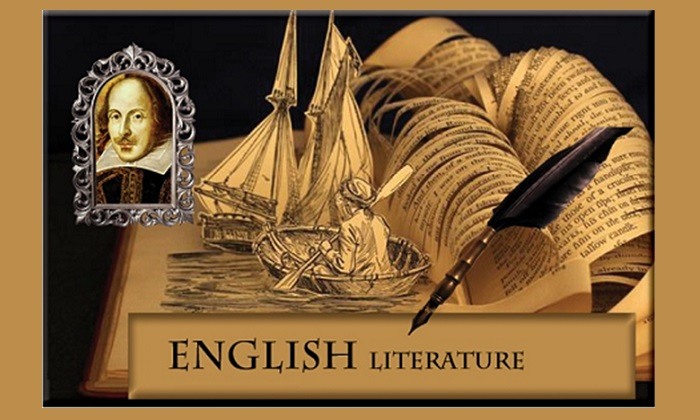
Strange Meeting by Wilfred Owen is war poetry written during World War I and is inspired by the circumstances prevalent back then. Here’s a complete analysis of the poem.
Strange Meeting by Wilfred Owen is war poetry:
GET INSTANT HELP FROM EXPERTS!
- Looking for any kind of help on your academic work (essay, assignment, project)?
- Want us to review, proofread or tidy up your work?
- Want a helping hand so that you can focus on the more important tasks?
Hire us as project guide/assistant. Contact us for more information
- Written by soldiers, during the World Wars
- Gives a first-person narration of war-side settings
- Written in first person, the soldier’s perspective
- Themes like- futility of wars, nostalgia, need for peace, existentialism
- A popular form of Modernist poetry
STRANGE MEETING: OVERVIEW
The poem is a dialogue between two soldiers during World War I and folows a dream-like narrative.- Reconciliation of enemies of war in death
- Victory or defeat in a war has no meaning after death
- Futility of wars- both sides justify their use of violence
- ‘Strange’ title as a paradox; as the enemies are one in death
- The soldiers are transported into another ‘Hell’- post-war trauma
- The poet uses ‘piteous eyes, dead smile’ metaphors for the surreal nature of war
- The speaker is free of animosity or sadness
- ‘strange friend’- meeting between equals, no enemies left to be defeated
- Mourns not on their death, but the hopelessness of the future
- A critique of love for violence
- Narrates an atmosphere of numbness- a world beyond tears and laughter
- ‘now men will go content’- contemplates on the idea of war and peace
- Highlights the speaker’s self-pity and existentialist angst
- The soldier’s life as a sacrifice for the sake of humanity
- Recognition of shared emotions and experience
- Use of incomplete rhymes adds to a sombre effect
ANALYSIS
…no blood reached there from the upper ground, And no guns thumped, or down the flues made moan. “Strange friend,” I said, “here is no cause to mourn.” “None,” said the other, “save the undone years, The hopelessness. Whatever hope was yours, Was my life also”
- ‘Other – a reference to alter ego, other self
- Questions all binaries – friend v/s enemy, truth v/s false, good v/s evil
- Owen attempts to un-romanticize the notion of war
- Owen’s imaginary journey as a metaphor to war as an unending voyage
- Questions the motive of war- no destination reached, no peace established
“I am the enemy you killed, my friend. I knew you in this dark for so you frowned Yesterday through me as you jabbed and killed. I parried; but my hands were loath and cold. Let us sleep now…”
CONTEMPORARY RELEVANCE
“I am not concerned with poetry. My subject is war; and the pity of war. The poetry is in the pity.”
Strange Meeting by Wilfred Owen: Complete Text
Strange Meeting BY WILFRED OWEN
It seemed that out of battle I escaped
Down some profound dull tunnel, long since scooped
Through granites which titanic wars had groined.
Yet also there encumbered sleepers groaned,
Too fast in thought or death to be bestirred.
Then, as I probed them, one sprang up, and stared
With piteous recognition in fixed eyes,
Lifting distressful hands, as if to bless.
And by his smile, I knew that sullen hall,—
By his dead smile I knew we stood in Hell.
With a thousand fears that vision’s face was grained;
Yet no blood reached there from the upper ground,
And no guns thumped, or down the flues made moan.
“Strange friend,” I said, “here is no cause to mourn.”
“None,” said that other, “save the undone years,
The hopelessness. Whatever hope is yours,
Was my life also; I went hunting wild
After the wildest beauty in the world,
Which lies not calm in eyes, or braided hair,
But mocks the steady running of the hour,
And if it grieves, grieves richlier than here.
For by my glee might many men have laughed,
And of my weeping something had been left,
Which must die now. I mean the truth untold,
The pity of war, the pity war distilled.
Now men will go content with what we spoiled.
Or, discontent, boil bloody, and be spilled.
They will be swift with swiftness of the tigress.
None will break ranks, though nations trek from progress.
Courage was mine, and I had mystery;
Wisdom was mine, and I had mastery:
To miss the march of this retreating world
Into vain citadels that are not walled.
Then, when much blood had clogged their chariot-wheels,
I would go up and wash them from sweet wells,
Even with truths that lie too deep for taint.
I would have poured my spirit without stint
But not through wounds; not on the cess of war.
Foreheads of men have bled where no wounds were.
“I am the enemy you killed, my friend.
I knew you in this dark: for so you frowned
Yesterday through me as you jabbed and killed.
I parried; but my hands were loath and cold.
Let us sleep now. . . .”
Notes:
Source: The Poems of Wilfred Owen, edited by Jon Stallworthy (W. W. Norton and Company, Inc., 1986)
StudyMumbai.com is an educational resource for students, parents, and teachers, with special focus on Mumbai. Our staff includes educators with several years of experience. Our mission is to simplify learning and to provide free education. Read more about us.

Leave a Reply
You must be logged in to post a comment.